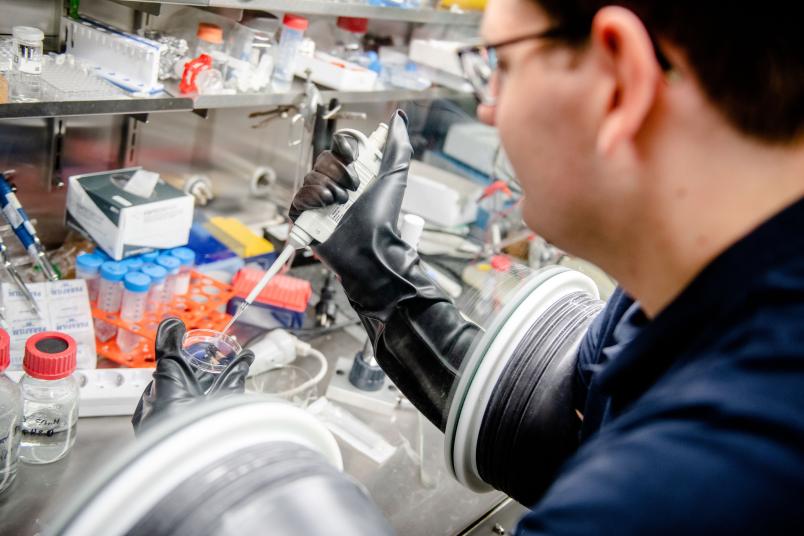
Electrochemistry
Making enzymes fit for industrial applications
Bacterial enzymes are often powerful but also very sensitive catalysts. To call up their performance, they therefore need a special environment.
Researchers at Ruhr-Universität Bochum (RUB) have developed new techniques for efficiently coupling bacterial enzymes to electrodes. Together with a team from the University of Utah, they realised a system for ammonia synthesis based on a nitrogenase enzyme. They also designed a hydrogen/oxygen biofuel cell based on a hydrogenase enzyme together with a team from the Max Planck Institute for Chemical Energy Conversion. Both papers have been published in the journal “Angewandte Chemie” in May and June 2020.
Powerful enzymes require special conditions
Many enzymes that occur in nature are powerful catalysts, such as the so-called [FeFe]-hydrogenases. Hydrogenases are used by bacteria to produce hydrogen, while nitrogenases succeed in activating the strongest bond in nature in nitrogen (N2). Both enzymes are highly sensitive to oxygen, but use readily available non-precious metals in their active centres. Thus they could one day replace expensive precious metal catalysts. “To use such highly sensitive catalysts for biofuel cells is still one of the biggest challenges in sustainable energy conversion,” says Professor Wolfgang Schuhmann, head of the RUB Centre for Electrochemistry and member of the cluster of excellence “Ruhr Explores Solvation”, Resolv.